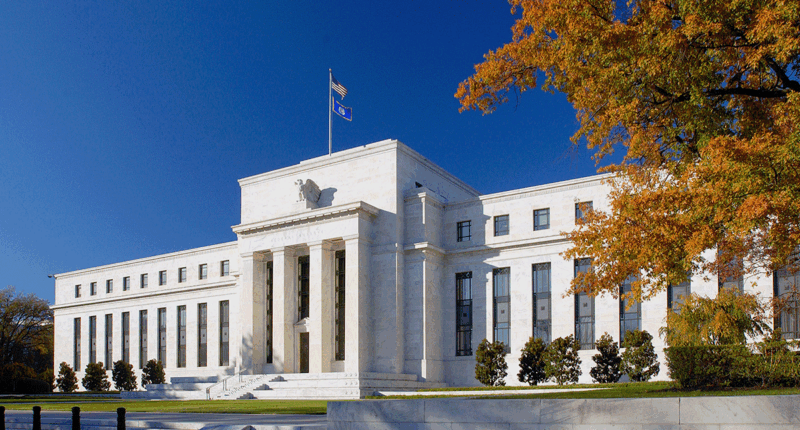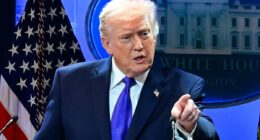Share this @internewscast.com
In a notable shift towards digital advancement, Federal Reserve Governor Christopher J. Waller has suggested the development of specialized “payment accounts” that would allow fintech and cryptocurrency companies limited access to the central bank’s payment network. Known as a “skinny master account,” this initiative aims to connect traditional banking institutions with new players in the financial technology arena, potentially integrating cryptocurrencies more deeply into the core of American finance.
Waller introduced this concept during his opening remarks at the Federal Reserve’s first-ever Payments Innovation Conference on October 21, 2025. The event was organized to encourage dialogue between established financial entities and cryptocurrency pioneers.
He highlighted that technologies like distributed ledgers and digital currencies have moved beyond being experimental and are now “increasingly woven into the fabric of the payment and financial systems.”
Waller argued that this evolution necessitates a more inclusive model for accessing the Fed’s services, which have traditionally been available to large institutions through comprehensive “master accounts” that offer advantages like earning interest and overdraft facilities.
A Tailored Alternative to Full Master Accounts
The essence of Waller’s proposal is a simplified account type specifically designed for companies focused on payments innovation, including stablecoin issuers and blockchain-based payment services. Unlike the traditional master accounts, these new “payment accounts” would come with limitations to minimize risk: no interest accumulation, capped balances, and exclusion from overdraft protections or the Fed’s emergency lending options.
The aim is to facilitate efficient transaction processing without extending broader banking privileges that could undermine financial stability. “I believe we can and should do more to support those actively transforming the payment system,” Waller stated, adding that he has tasked Fed staff with further exploring this initiative.
He envisions these accounts as a “prototype” for collaboration, inviting input from stakeholders on potential benefits and pitfalls. For eligible institutions—those already legally qualified for Fed access—this could eliminate the need for cumbersome partnerships with big banks, reducing costs and speeding up cross-border and real-time transactions. The proposal arrives amid heightened scrutiny of crypto’s role in finance. The Fed has been piloting blockchain applications for payments, including explorations of tokenization, smart contracts, and AI integrations, as Waller noted during the conference.
This hands-on research underscores a broader “new era” in payments, where decentralized finance (DeFi) and crypto are welcomed rather than viewed with suspicion.
Implications for Crypto Firms and the Broader Market
The timing couldn’t be more poignant for the crypto industry, which has long lobbied for equitable access to Fed rails. Companies like Ripple, which applied for a master account earlier this year, stand to benefit immensely. Direct connectivity could slash reliance on intermediaries, enabling near-instant settlements and bolstering liquidity for institutional and retail users alike.
Caitlin Long, founder and CEO of Custodia Bank, expressed strong support for Federal Reserve Governor Christopher Waller’s proposal on limited “skinny” master accounts for payments-focused institutions, viewing it as a long-overdue correction to prior Fed restrictions that targeted crypto-native banks like hers.
Market reactions were swift: Bitcoin surged past $112,000 in the hours following the announcement, with analysts hailing it as a bullish validation of crypto’s legitimacy within the U.S. economy.
Stablecoin operators, in particular, could see their dollar-pegged assets function more seamlessly as extensions of the traditional system, accelerating adoption in global payments and treasury management.
Critics, however, caution that even limited access must be tightly regulated to avoid systemic vulnerabilities, echoing concerns from the 2023 collapses of crypto-friendly banks that fueled “Operation Chokepoint 2.0” allegations.
Waller acknowledged this balance, stressing that the initiative prioritizes innovation while safeguarding stability.
A Step Toward Inclusive Financial Evolution
Waller’s remarks signal a philosophical turn at the Fed: from wary oversight to proactive integration. By convening innovators and incumbents at the conference, the central bank is fostering an environment where crypto isn’t a disruptor to be contained but a partner in modernizing payments.
As the staff delves deeper into the payment account model, it could redefine eligibility under the Fed’s 2022 tiered review guidelines, potentially unlocking a wave of tokenized and AI-enhanced financial tools. For now, the proposal remains exploratory, with no firm timeline for implementation. Yet, in Waller’s words, it’s a clear acknowledgment that “the DeFi industry is not viewed with suspicion or scorn.”
If realized, this could mark a pivotal moment, pulling cryptocurrencies from the periphery into the pulsating core of U.S. finance.

















